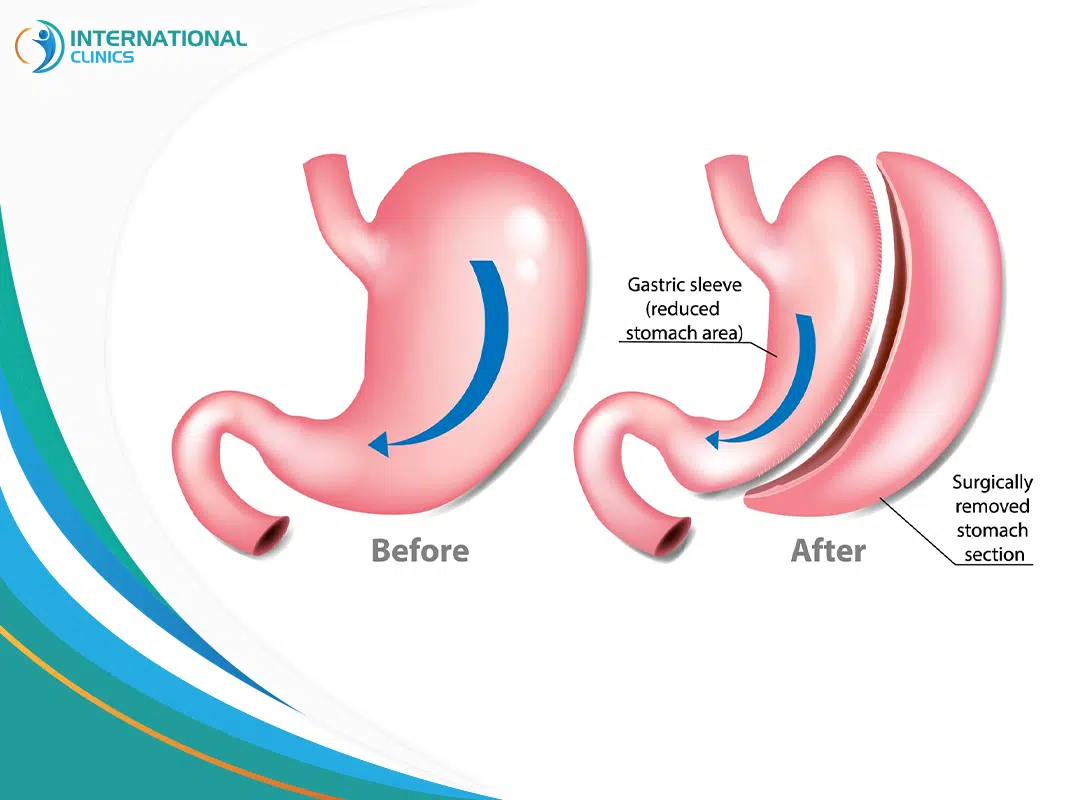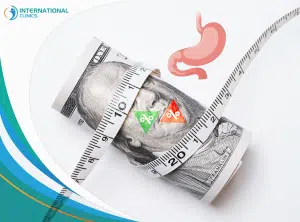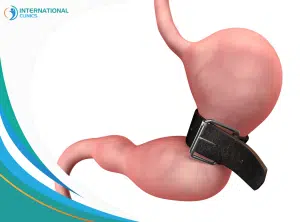The prevalence of obesity has been steadily rising, becoming a global health concern of alarming proportions. Sedentary lifestyles, unhealthy dietary habits, and genetic factors contribute to this epidemic.
As obesity is linked to various serious health issues, including diabetes, cardiovascular disease, and joint problems, the need for effective treatment options has never been more critical, especially for those who seek treatment options abroad, which might be less costly.
Gastric sleeve surgery, also known as sleeve gastrectomy, is a significant procedure within the scope of weight loss and bariatric surgery.
This surgical intervention involves the reduction of the stomach’s size, resulting in reduced food intake and weight loss.
It has gained attention as an effective treatment for obesity and related health conditions, offering individuals a chance to achieve substantial weight loss and improve their overall well-being.
Now that we’ve scratched the surface of what’s gastric sleeve surgery all about, let’s dive deeper into its top benefits and considerations.
Save your time and get all the details in one click with your free consultation
Considerations & Eligibility
Eligibility for gastric sleeve surgery in Turkey is determined through careful medical evaluation and consideration of various factors. Generally, candidates for gastric sleeve surgery include:
BMI (Body Mass Index)
The first requirement is typically the Body Mass Index (BMI), which is a measure of body fat based on height and weight. Individuals with a BMI of 40 or higher, or a BMI of 35-39.9 with significant obesity-related health issues (such as diabetes, hypertension, and sleep apnea), are often considered eligible.
Failed Weight Loss Attempts
Those who have attempted other weight loss methods, such as diet and exercise, without achieving sustainable results. It’s essential to demonstrate your commitment to improving your health by trying alternative methods before considering this procedure.
Age and Health Status
Generally, candidates are between 18 and 65 years old and in relatively good health. an evaluation of overall health and readiness for lifestyle changes, including information on physical and mental preparedness, will also be conducted.
Psychological Evaluation
A psychological evaluation for gastric sleeve surgery involves an assessment by a mental health professional to determine if a candidate is mentally ready for the procedure. This includes any history of depression, anxiety, eating disorders, or other psychological conditions.
Commitment
Undergoing gastric sleeve surgery is not a quick fix for weight loss. It requires a significant commitment to making lasting lifestyle changes in order to achieve long-term success. This includes adopting healthier eating habits, engaging in regular physical activity, and attending follow-up appointments with your healthcare team.
Absence of Contraindications
The candidate should not have any existing health issues or situations that would significantly increase the risks or complications associated with the surgery.
A thorough medical assessment is conducted to ensure that the candidate’s health status aligns with the surgical requirements and that there are no red flags that would make the surgery unsafe or less effective.
Medical Monitoring
Medical monitoring after gastric sleeve surgery involves regular consultations, tests, and appointments with healthcare experts to ensure the person’s recovery is on track and to identify any possible concerns or complications early on.
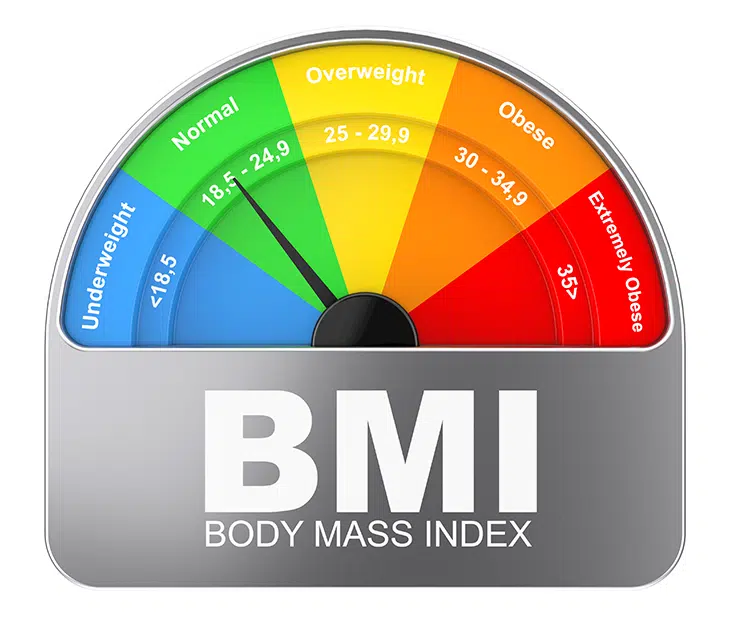
Get a Free Consultation Right Now!
Benefits of Gastric Sleeve Surgery
We can mention the benefits and advantages of this surgery as follows:
1- Substantial Weight Loss
Gastric sleeve surgery involves reducing the stomach’s size by about 70-80%, leading to significant weight loss over time. The smaller stomach limits the amount of food that can be consumed, encouraging portion control and decreased caloric intake.
2- Health Improvement
As weight is lost, many obesity-related health conditions often improve or even resolve completely. These may include type 2 diabetes, hypertension (high blood pressure), sleep apnea, and metabolic syndrome.
3- Appetite Regulation
The surgery triggers hormonal changes that impact appetite-regulating hormones, such as ghrelin. This can lead to reduced hunger and fewer food cravings, making it easier for individuals to adopt healthier eating habits.
4- Enhanced Quality of Life
Losing excess weight and improving health can boost self-esteem, increase mobility, and allow individuals to engage more actively in social and physical activities.
5- Long-Term Results
Gastric sleeve surgery provides lasting weight loss outcomes, particularly when combined with consistent post-operative care, regular exercise, and a balanced diet. The procedure helps individuals establish a foundation for sustained weight maintenance.
6- Minimally Invasive Approach
Most gastric sleeve surgeries are performed laparoscopically, involving small incisions and specialized instruments. This minimally invasive approach typically results in shorter hospital stays, quicker recovery times, and reduced scarring compared to traditional open surgeries.
7- Reduced Risk of Certain Cancers
Losing excess weight through gastric sleeve surgery can lower the risk of developing certain cancers associated with obesity, including breast, colon, and pancreatic cancer.
8- Decreased Medication Dependency
As weight-related health conditions improve, many individuals may experience a reduced need for medications or even discontinue their use altogether, under medical supervision.
9- Positive Psychological Impact
Achieving weight loss goals and experiencing improved health often leads to enhanced mental well-being, increased self-confidence, and reduced stress.
10- Support for Lifestyle Changes
Gastric sleeve surgery serves as a catalyst for adopting healthier habits. While the surgery jumpstarts weight loss, individuals are encouraged to maintain an active lifestyle and make nutritious food choices, promoting long-term weight management.
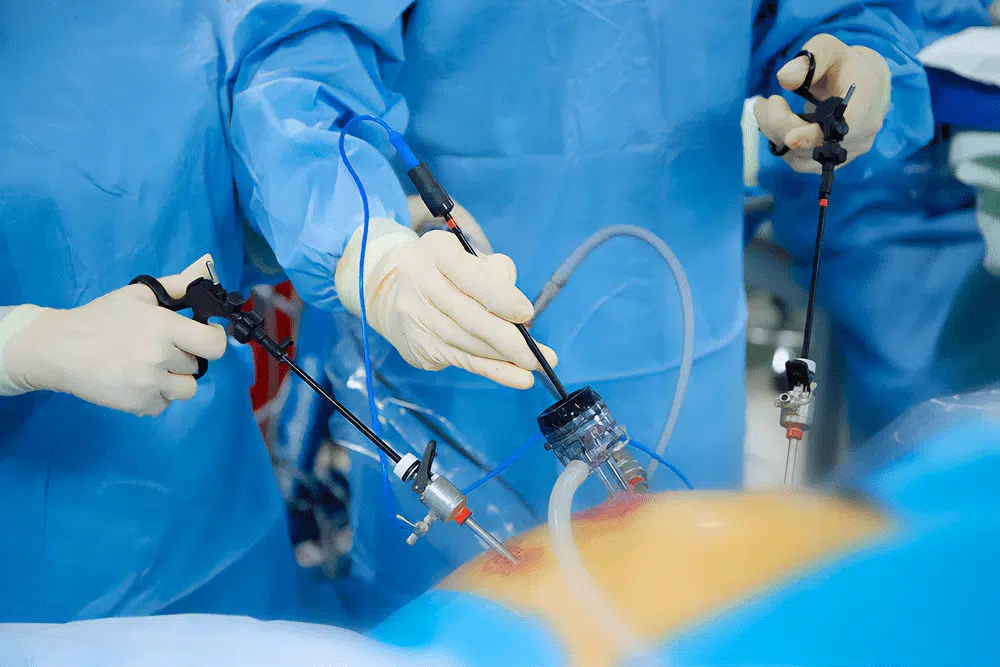
Duration of Gastric Sleeve Surgery Procedure
Gastric sleeve surgery typically ranges from one to two hours. The actual duration of a gastric sleeve can vary based on individual factors such as your overall health, body mass index (BMI), and any underlying medical conditions. In some cases, additional time may be required if there are complications or if the surgeon needs to take extra precautions.
Process of Gastric Sleeve Surgery
Also known as sleeve gastrectomy surgery, the process involves several key steps that are performed under general anesthesia in an operating room setting. Here’s an overview of how gastric sleeve surgery is conducted using the laparoscopic technique:
Preparation
Before the surgery, the patient undergoes a comprehensive medical evaluation to ensure they are a suitable candidate for the procedure. This evaluation includes physical exams, blood tests, imaging studies, and consultations with a multidisciplinary team, which may include a surgeon, dietitian, psychologist, and other specialists.
Anesthesia
On the day of the surgery, the patient is placed under general anesthesia, which means they are unconscious and feel no pain during the procedure. An anesthesiologist administers medications through an IV line. This allows the surgical team to safely perform the surgery while closely monitoring the patient’s vital signs, such as heart rate, blood pressure, and oxygen levels.
Incisions
The surgeon makes several small incisions (usually 4-6) in the abdomen, each about half an inch to an inch in length. These small incisions are used as access points for surgical instruments and a tiny camera called a laparoscope.
Inserting Instruments
The laparoscope and specialized surgical instruments are inserted through the small incisions. The laparoscope provides real-time video feed to a monitor in the operating room, allowing the surgeon to visualize the surgical area in detail.
Stomach Dissection
The surgeon carefully dissects the stomach, removing about 80-85% of its outer curvature. This portion of the stomach is permanently removed, leaving behind a smaller, banana-shaped pouch.
Stapling and Closure: The remaining portion of the stomach is sealed using surgical staples or sutures, creating a smaller stomach pouch. After the stomach has been reshaped and resized, the surgeon checks for any bleeding or leaks and ensures that everything is secure.
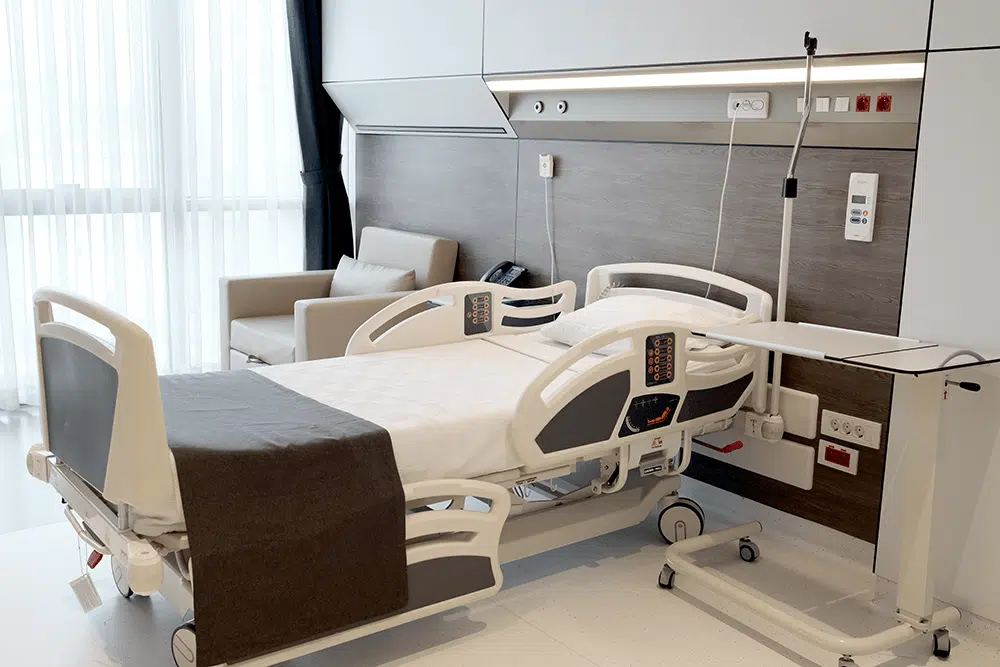
Recovery After Gastric Sleeve Surgery
To aid in your recovery, it is important to follow specific guidelines provided by your healthcare team. After undergoing gastric sleeve surgery, you can expect to spend some time recovering in the hospital. The typical range for a hospital stay is between one to three days. During this period, medical professionals will closely monitor your condition and provide the necessary care.
Initial Liquid Diet
Following gastric sleeve surgery, you will initially be placed on a liquid diet. This helps your body adjust to the changes and allows your stomach to heal properly.
During this phase, you will consume clear liquids such as water, broth, and sugar-free gelatin. It is essential to avoid carbonated beverages and sugary drinks as they can cause discomfort and reflux.
As your body begins to adapt, you will gradually progress to consuming thicker liquids like protein shakes and pureed foods. These provide necessary nutrients while still being easy for your stomach to digest. It’s important to remember that this phase may last several weeks or longer, depending on individual circumstances.
Full recovery can take several weeks
Although you may leave the hospital after just a few days following gastric sleeve surgery, it’s essential to understand that full recovery can take several weeks. Your body needs time to heal from both the surgical incisions and adjustments to your digestive system.
During the initial weeks of recovery, you may experience discomfort, fatigue, and changes in appetite. It’s important to listen to your body and give yourself ample rest during this period. Engaging in light physical activity, such as short walks, can help promote blood circulation and aid in the healing process.
Pain Medication and Antibiotics
Gastric sleeve surgery involves making incisions in the abdomen, which can result in postoperative pain. Your healthcare provider may prescribe pain medication to help alleviate any discomfort during the recovery period. It is vital that you take these medications as directed by your doctor.
Antibiotics may be prescribed after surgery as a preventive measure against infection. Following proper hygiene practices and taking antibiotics as recommended can significantly reduce the risk of complications during recovery.
Regular Follow-up Appointments
Regular follow-up appointments with your healthcare provider are an integral part of the recovery process after gastric sleeve surgery. These appointments allow them to monitor your progress, address any concerns or complications promptly, and make adjustments if necessary.
During these visits, various aspects of your recovery will be assessed, including weight loss progression and overall health status. Your doctor may also provide guidance on dietary modifications and physical activity recommendations tailored to your specific needs.
Gradually Increasing Physical Activity
Physical activity plays a crucial role in the recovery process after gastric sleeve surgery. Initially, you will be advised to engage in light activities such as short walks to promote blood circulation and prevent complications like blood clots.
As your healing progresses, you can gradually increase the intensity and duration of your exercise routine. Regular physical activity not only aids in weight loss but also helps strengthen muscles and improve overall well-being. It is essential to consult with your healthcare provider before starting any exercise program to ensure it aligns with your recovery goals.
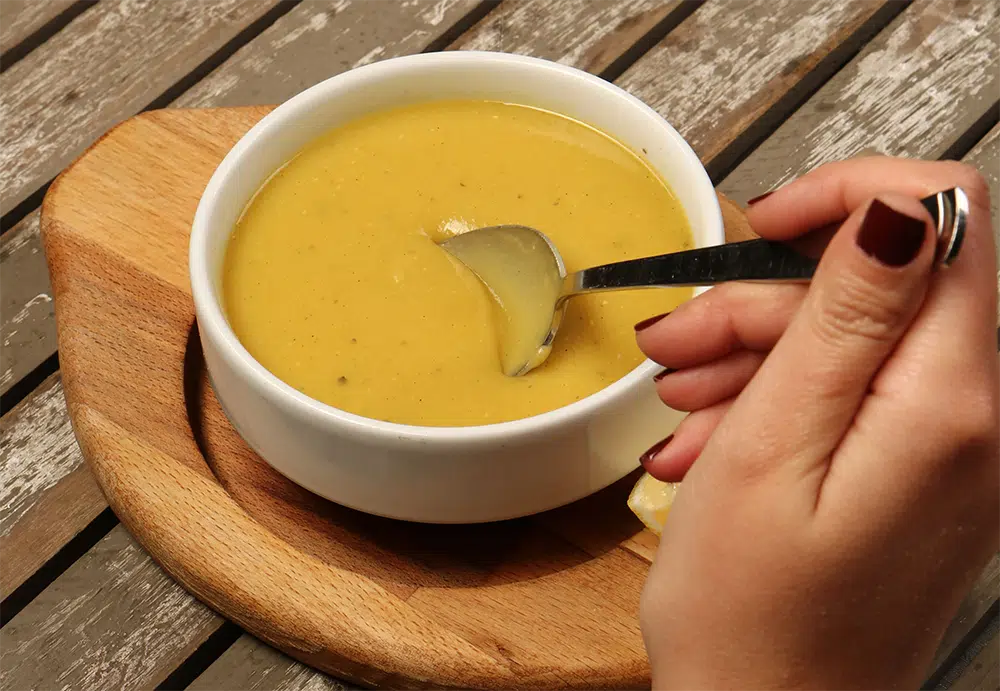
Speak with Board-Certified Surgeons!
Potential Disadvantages of Sleeve Gastrectomy
Like any surgical procedure, Sleeve gastrectomy also has potential disadvantages and risks involved. One significant concern is the risk of complications that may arise during or after the surgery. These risks are relatively low when performed by an experienced surgeon in a reputable facility but should not be taken lightly.
Here are some potential disadvantages of sleeve gastrectomy presented in a table format:
| Irreversible | The surgery permanently alters the stomach shape, making it non-reversible. |
| Limited Nutrient Absorption | Reduced stomach size might affect nutrient absorption, requiring long-term supplementation. |
| Acid Reflux | Some patients may experience increased acid reflux due to changes in stomach anatomy. |
| Weight Regain | Over time, a minority of patients may regain weight due to stretch of the remaining stomach. |
| Surgical Risks | As with any surgery, there are inherent risks, such as infection, bleeding, scars, and anesthesia complications. |
| Long-term Follow-up | Lifelong commitment to lifestyle changes and medical follow-up is essential for sustained success. |
| Potential Complications | Leaks, strictures, and other complications can arise from the surgery. |
| Dietary Restrictions | Patients must adhere to dietary guidelines, including smaller meals and avoidance of certain foods. |
Expected Weight Loss with Gastric Sleeve Surgery
Weight loss following gastric sleeve surgery can vary from person to person, depending on factors such as starting weight, age, gender, adherence to dietary and lifestyle changes, and overall health. On average, patients can typically expect to achieve the following weight loss milestones after undergoing gastric sleeve surgery:
- Short-Term Weight Loss (6-12 Months)
- In the first six to twelve months after surgery, many patients can lose around 50-70% of their excess body weight. This is considered a rapid and significant weight loss phase.
- Mid-Term Weight Loss (1-2 Years)
- Over the course of one to two years, patients may continue to lose weight, although at a slower rate compared to the initial months. This phase could lead to an additional 10-20% reduction in excess body weight.
- Long-Term Weight Loss (2+ Years)
- Beyond the two-year mark, weight loss might stabilize, and some patients could reach a total weight loss of around 60-80% of their excess body weight.
By combining dietary guidelines, incorporating regular exercise into your routine, and maintaining personal commitment, you can maximize the potential of gastric sleeve surgery for weight loss. It’s an ongoing process that requires effort and determination but yields incredible results.
When Gastric Sleeve Surgery Doesn’t Yield Desired Results?
While gastric sleeve surgery can be highly effective for many individuals seeking weight loss, there are instances where the desired results may not be fully achieved. Several factors can contribute to this outcome:
Lifestyle Adherence
Success after gastric sleeve surgery requires significant lifestyle changes, including adopting a healthy diet and regular exercise. If a patient doesn’t adhere to these changes, weight loss may be slower or less significant.
Metabolic Factors
Some individuals may have metabolic conditions or hormonal imbalances that can influence weight loss outcomes. These factors can affect the body’s ability to lose weight even after surgery.
Initial Weight
Patients with extremely high initial body weight may not achieve the same percentage of weight loss as those with lower starting weights.
Psychological Factors
Emotional and psychological factors can impact weight loss success. Emotional eating or underlying mental health issues may hinder progress.
Medical Complications
Surgical complications or post-surgery medical issues can affect weight loss results. These complications might require additional interventions or adjustments to the surgical approach.
Plateau
Weight loss may plateau after an initial period of success. This is common and can be managed with ongoing support and adjustments to the treatment plan.
Non-Surgical Options
In some cases, patients may need additional interventions beyond surgery, such as medication or other medical treatments, to achieve the desired weight loss.
Body Composition Changes
While weight loss may not be as expected, improvements in body composition, such as reduced fat and increased muscle mass, can still lead to better overall health.
Considering Revision Surgery
In certain cases where gastric sleeve surgery does not yield the desired outcomes, revision surgery may be considered as an option.
Revision surgery involves modifying or correcting the initial procedure to help patients reach their weight loss goals effectively. However, it’s essential to note that revision surgery is typically recommended only after careful evaluation by medical professionals.
Before opting for revision surgery, healthcare providers will thoroughly assess the patient’s individual circumstances and determine if other factors are contributing to the lack of progress.
They will also consider any potential risks or complications associated with additional surgical interventions. Revision surgeries are generally performed when there is evidence of anatomical changes or technical issues related to the initial procedure.
Impact of Gastric Sleeve Surgery on Stomach Volume & Hormonal Changes
- Reduced stomach volume limits food intake, leading to weight loss
- Removal of part of the stomach reduces the production of hunger-stimulating hormones
- Alters gut hormone levels, affecting appetite regulation
- Helps patients feel full more quickly and stay satisfied longer
Long Term Outcomes of Gastric Sleeve Surgery
Improved Quality of Life
Gastric sleeve surgery has been a life-changing procedure for many patients. Individuals who have undergone this surgery often report a significant improvement in their overall quality of life.
With the reduction in excess weight, patients experience newfound energy and vitality that they may not have had before. They are able to engage in activities they previously couldn’t, such as playing with their children or participating in sports.
Moreover, obesity surgery in Turkey in general can have a positive impact on self-esteem and body image. Many patients struggle with their weight for years, feeling self-conscious and unhappy with their appearance.
After the surgery, as the pounds start to melt away, patients often find themselves feeling more confident and comfortable in their own skin. This boost in self-esteem can lead to improved mental well-being, positively impacting various aspects of their lives.
Reduction or Elimination of Obesity-Related Health Conditions
One of the significant benefits of gastric sleeve surgery is its ability to address obesity-related health conditions. Patients who were previously burdened by medical conditions such as diabetes, high blood pressure, or sleep apnea often see remarkable improvements after undergoing the procedure.
For instance, individuals suffering from type 2 diabetes may witness a dramatic decrease in their blood sugar levels following gastric sleeve surgery.
In some cases, they may even achieve complete remission from diabetes altogether. This outcome not only improves their physical health but also reduces the need for medications and ongoing medical treatments.
Similarly, other obesity-related health problems like high blood pressure or joint pain caused by excessive weight can be alleviated through gastric sleeve surgery. As excess weight is shed post-surgery, these conditions tend to improve significantly or even disappear entirely.
Inspiring Stories as Motivation
Individuals who have undergone this surgery often report a significant improvement in their overall quality of life.
With the reduction in excess weight, patients experience newfound energy and vitality that they may not have had before. They are able to engage in activities they previously couldn’t, such as playing with their children or participating in sports.
By sharing their experiences, patients who have undergone gastric sleeve surgery inspire others to make positive changes in their own lives.
These success stories remind people that they are not alone in their struggles and that there is a supportive community of individuals who have gone through similar experiences.

The Bottom Line
Gastric sleeve in Turkey is a significant step toward weight loss and improved health for many individuals. Commitment to lifelong lifestyle changes, including a balanced diet and regular exercise, is crucial for sustained weight loss and overall well-being.
Individual outcomes can vary based on factors such as starting weight, adherence to post-operative guidelines, and individual health considerations.
Some individuals may achieve rapid and significant weight loss, while others might experience slower progress or encounter challenges along the way.
In conclusion, gastric sleeve surgery is a transformative journey that requires dedication, perseverance, and a partnership between patients and healthcare providers.
International Clinics provides comprehensive pre-operative evaluation, skillful surgery, and ongoing post-operative care. Our goal is to allow individuals to march toward a healthier and improved quality of life. Contact us now for more information.
How long does it take to recover after gastric sleeve surgery?
The recovery period after gastric sleeve surgery typically involves staying at the hospital for a few days for monitoring and pain management. However, full recovery can take several weeks or even months depending on individual circumstances.
Will I experience significant weight loss after gastric sleeve surgery?
Yes, gastric sleeve surgery often leads to significant weight loss. On average, patients may expect to lose between 50% to 70% of their excess body weight within two years following the procedure.
Are there any risks associated with gastric sleeve surgery?
Like any surgical procedure, there are risks involved with gastric sleeve surgery. These risks include infection, bleeding, blood clots, leaks from staple lines in the stomach, and potential complications related to anesthesia. It’s important to discuss these risks with your healthcare provider before making a decision.
Can I regain weight after undergoing gastric sleeve surgery?
While gastric sleeve surgery helps facilitate significant weight loss initially, it’s essential to adopt healthy lifestyle habits to maintain long-term results. Without proper diet and exercise, weight regain is possible.
Will I need to follow a specific diet after gastric sleeve surgery?
Yes, following gastric sleeve surgery, you will need to adhere to a specific diet plan recommended by your healthcare team. This typically involves transitioning from a liquid diet to gradually reintroducing solid foods over several weeks or months.
Are there non-surgical alternatives to gastric sleeve surgery?
Yes, there are non-surgical alternatives available for weight loss, such as lifestyle modifications, dietary changes, exercise programs, and medication options. It’s essential to discuss these alternatives with your healthcare provider to determine the most appropriate approach for you.
Can I undergo gastric sleeve surgery if I have other health conditions?
Individuals with certain obesity-related health conditions may be eligible for gastric sleeve surgery. However, it’s crucial to consult with your healthcare provider to determine if this procedure is suitable for you based on your specific health situation.
Read more: Gastric sleeve cost in Turkey
